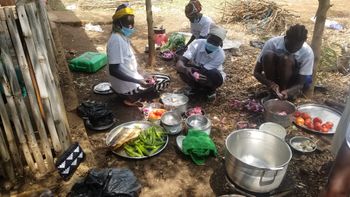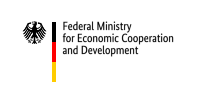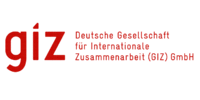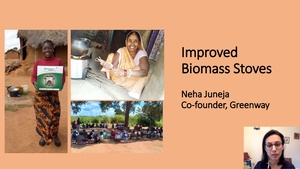Knowledge fuels change - Support energypedia!
For over 10 years, energypedia has been connecting energy experts around the world — helping them share knowledge, learn from each other, and accelerate the global energy transition.
Today, we ask for your support to keep this platform free and accessible to all.
Even a small contribution makes a big difference! If just 10–20% of our 60,000+ monthly visitors donated the equivalent of a cup of coffee — €5 — Energypedia would be fully funded for a whole year.
Is the knowledge you’ve gained through Energypedia this year worth €5 or more?
Your donation keeps the platform running, helps us create new knowledge products, and contributes directly to achieving SDG 7.
Thank you for your support, your donation, big or small, truly matters!
Difference between revisions of "Webinar on Cooking Energy in Displacement Settings"
***** (***** | *****) m Tag: 2017 source edit |
***** (***** | *****) m Tag: 2017 source edit |
||
| Line 13: | Line 13: | ||
<div id="webinar-1"> | <div id="webinar-1"> | ||
| − | == Webinar 3: Delivery Models | + | == Webinar 3: Delivery Models == |
Tue, Nov 9, 2021 2:00 PM - 3:30 PM CEST <br> | Tue, Nov 9, 2021 2:00 PM - 3:30 PM CEST <br> | ||
Revision as of 15:55, 4 October 2021
Webinar Series: Cooking Energy in Displacement Settings

Safe and sustainable access to cooking energy in displacement settings is a persistent challenge for the humanitarian community. As a result, displaced populations are subject to protection, health, food security risks as well as conflict over natural resources, in addition to experiencing fuel shortages and gender inequalities. It is generally assumed that the markets for energy products and services in displacement settings are at a low level, although displaced people around the world already spend more than $1.6 billion a year to light their homes and cook their food,1 as such there is a significant potential for private-sector engagement in this context, which could result in win-win scenarios for all stakeholders.2 A major constraint for increased private-sector engagement are gaps in knowledge, coordination and mutual understanding between private sector, development and humanitarian actors.
Against this background, GIZ (ESDS and EnDev), GPA and MECS are co-organising a webinar series on Cooking Energy in Displacement Settings.
Webinar 3: Delivery Models
Tue, Nov 9, 2021 2:00 PM - 3:30 PM CEST
Register here: https://register.gotowebinar.com/register/4034286701083137038
This webinar will outline the different delivery models for providing access to clean cooking solutions in the humanitarian context. The first half will feature an overview presentation on three main delivery models i.e Free distribution, Cash-based transfer and Private sector business models. The second half will then showcase examples of the different delivery models and how they can be combined in humanitarian responses. This webinar is organised jointly by GIZ (ESDS and EnDev), GPA and MECS and is part of a webinar series on Cooking Energy in Displacement Settings.
Webinar 2: All Relevant Cooking Systems in a Word
- The opinions shared in this webinar are those of the presenters. For questions, please contact the presenters directly.
This webinar, second in the series provides a brief snapshot of relevant cooking energy systems such as processed biomass, firewood, e-cooking, LPG, ethanol and biogas. The first part of the webinar will feature short presentations highlighting the applicability, availability, affordability, health and safety as well as environmental aspects of each cooking system. In the second part, the audience can dive deeper into break-out sessions and engage directly with the presenters. This webinar will feature six break-out sessions on the above-mentioned cooking systems.
Presentation
Webinar 1: Landscaping
This webinar aims to provide an overview of the stakeholder landscape of the humanitarian cooking sector and to improve mutual understanding as a base for successful cooperation. It will shed light on their approaches and what are their advocating for; success factors as well as common challenges in existing cooking energy interventions.
First in the series, this webinar will feature a presentation providing an overview of the landscape of the humanitarian cooking sector followed by a moderated panel discussion. To get a holistic picture, speakers from humanitarian and development organisations, the private sector, policy consultancy and a community representative will participate in the panel.
Q&A
All Q&A during the webinar are document here.
Summary
Key takeaways from the webinar
Resources
African Clean Energy PROSPERS Presentation
Agenda
| Speakers/Organisation | |
| Introduction | Ranisha Basnet, Energypedia |
| Overview of the humanitarian cooking sector | Anh Tran (Modern Energy Cooking Services (MECS) |
| Panel discussion |
|
| Q&A | All panelists |
| Final Takeaway | Mark Gibson, Global Platform for Action (GPA) on Sustainable Energy in Displacement Settings, UNITAR |
| Closing | Ranisha, Energypedia |
Financed by

Organised by
 |
 |
Co-organised by

|




















